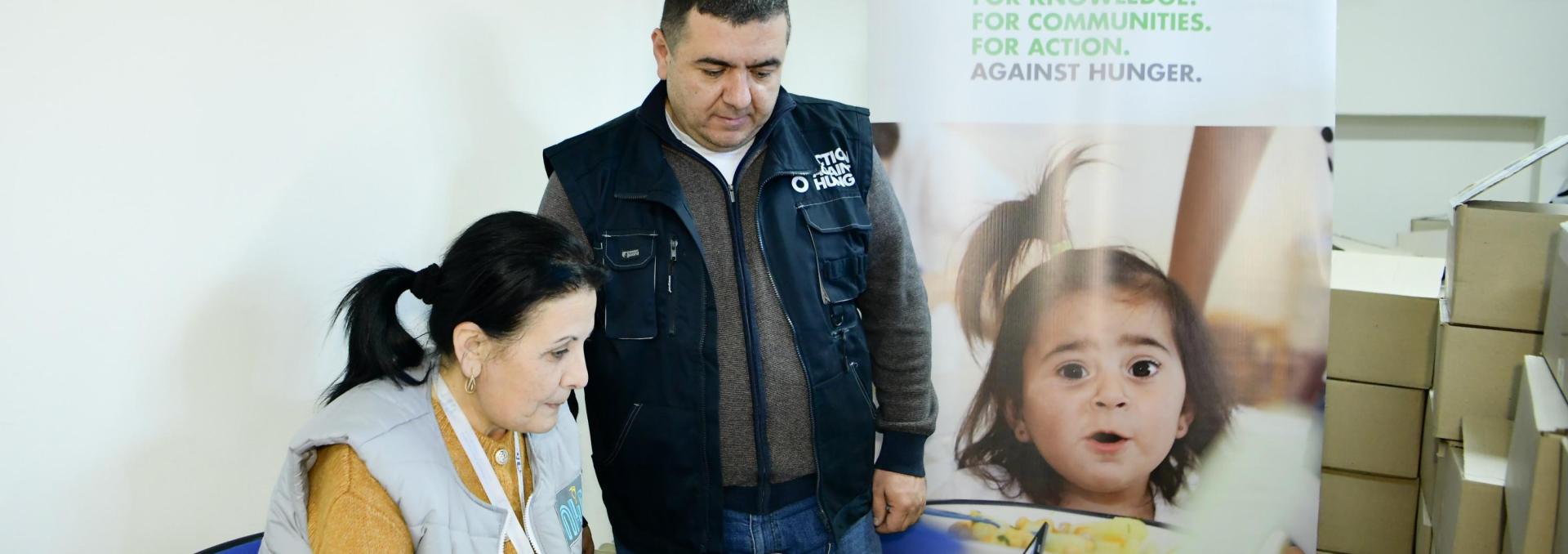

AECID provides essential humanitarian assistance for refugees in the first months of displacement from Nagorno Karabakh
Action Against Hunger, together with its local partner, Partnership and Teaching (P&T) has been providing humanitarian assistance to refugees in Syunik province from Nagorno-Karabakh who have been displaced in Armenia since late September 2023. Assistance has been provided through financial support from the Spanish Agency for International Development Cooperation (AECID) over a period of four months from October 2023 to January 2024 and has includes voucher assistance and the provision of mental health and psychological support services (MHPSS).
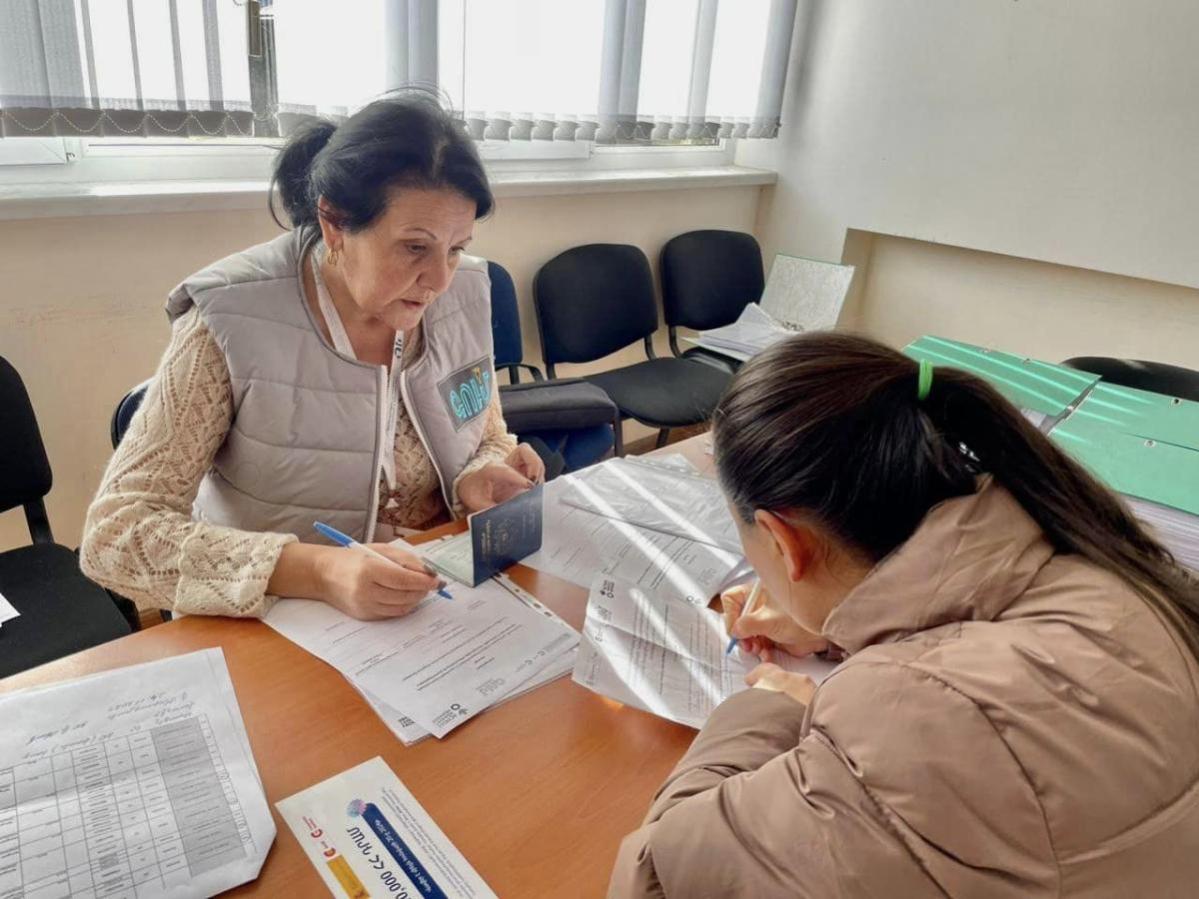
The project has provided 150 households with multi-purpose vouchers for two months of the value of 40,000 AMD (approx. 90 EUR) per month each to purchase food, hygiene items and basic household utensils, as well as MHPSS services to 250 households. These beneficiaries are located in urban areas such as Goris and Sisian, as well as rural communities in Tegh, and Tatev. The province was highly impacted by the influx of refugees as this it was the entry point into Armenia for more than 100,000 people fleeing the conflict in Nagorno Karabakh.
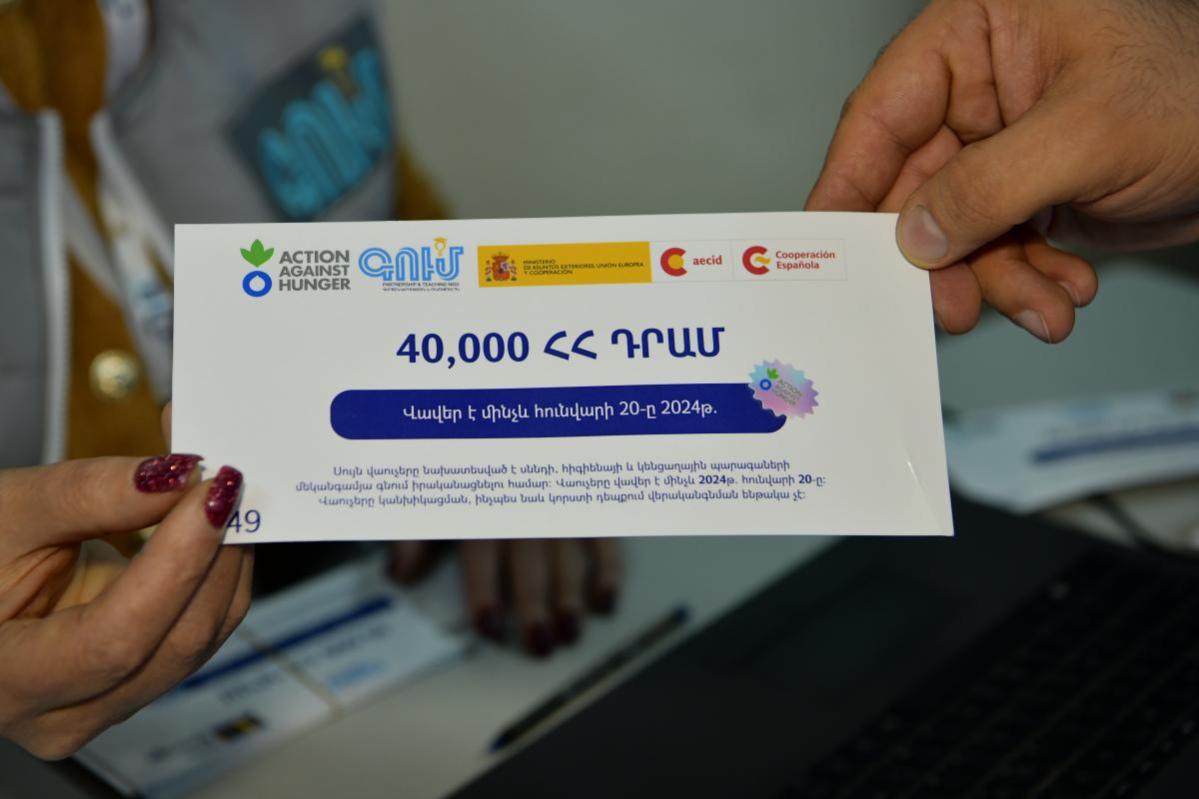
Executive Director of P&T, Artashes Torozyan, provides the following insights into the work of P&T and the support that they are providing to refugees from Nagorno Karabakh with funds from AECID.
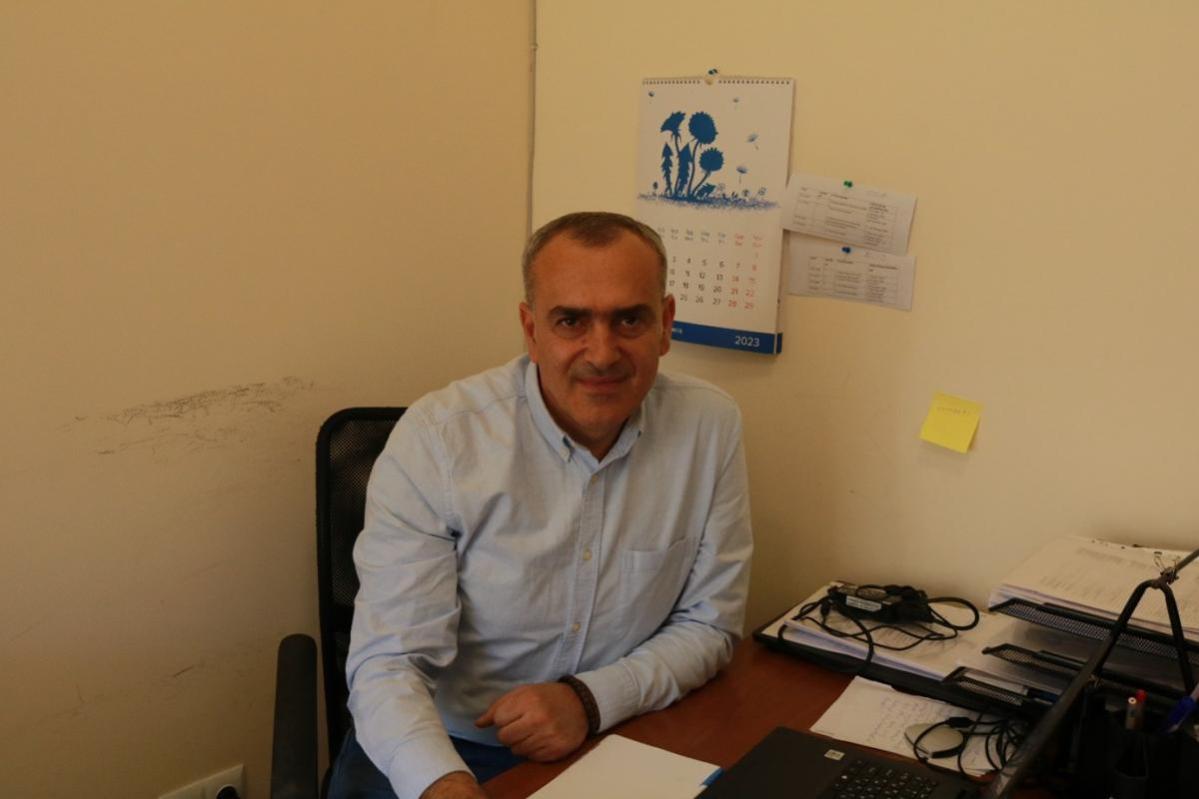
As he explains, P&T was created as an organization focused on supporting civil society development and building the capacities of communities. However, following the Nagorno Karabakh conflict in 2020, P&T shifted its focus to offer humanitarian support to refugees coming across the border into Armenia. Their location in the center of Goris was highly beneficial as their office could be easily reached by refugees. This presence, coupled with a reputation for effective aid delivery and transparency, has allowed them to create a positive environment for information sharing with community groups and the local authorities, ensuring a coordinated response for those refugees who are most in need of their support.
In the case of AECID, this support has been focused on MHPSS through P&T’s social workers and psychologist and the multi-purpose voucher assistance. As Artashes says, “Partnership and Teaching was providing a voucher for the first time, which was a great experience to understand its effectiveness. The organization has evaluated the impact as positive through the feedback of the beneficiaries. Our organization is pleased to be able to stay by the side of forcibly displaced persons from Nagorno Karabakh, focusing on their needs and necessities.”
Hasmik Arzumanyan, P&T Office Manager, adds that the provision of mental health support services has played a crucial role in the support to the refugees and their families. Their centers provide MHPSS services to the families of children who attend their Child Friendly Spaces, including parenting support and referrals to more specialized assistance. This initially took the form of “psychological first aid” which addressed the immediate impact of the conflict. However, it has since evolved to focus on long-term issues and lasting trauma.
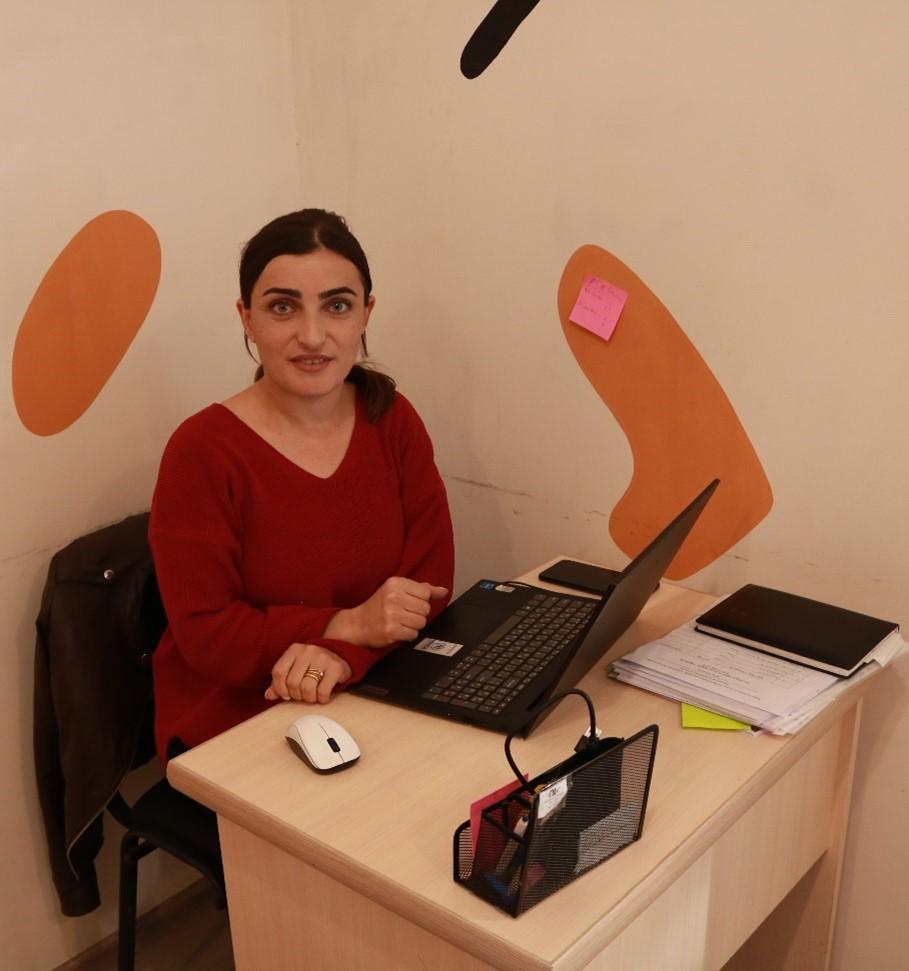
Hasmik also says that P&T also offers this regular assistance to refugees from the 2020 conflict and locals from Goris who require psychosocial support and that these spaces also serve as an integration center, allowing for children from Nagorno Karabakh and Goris to meet and form social bonds. Partnership and Teaching has also noted that many of those who have fled to Goris following the conflict in September had previously engaged with the NGO following the conflict in 2020 but had previously chosen to return to Nagorno Karabakh. This means that, for many, addressing both short and long-term psychological trauma remains essential.
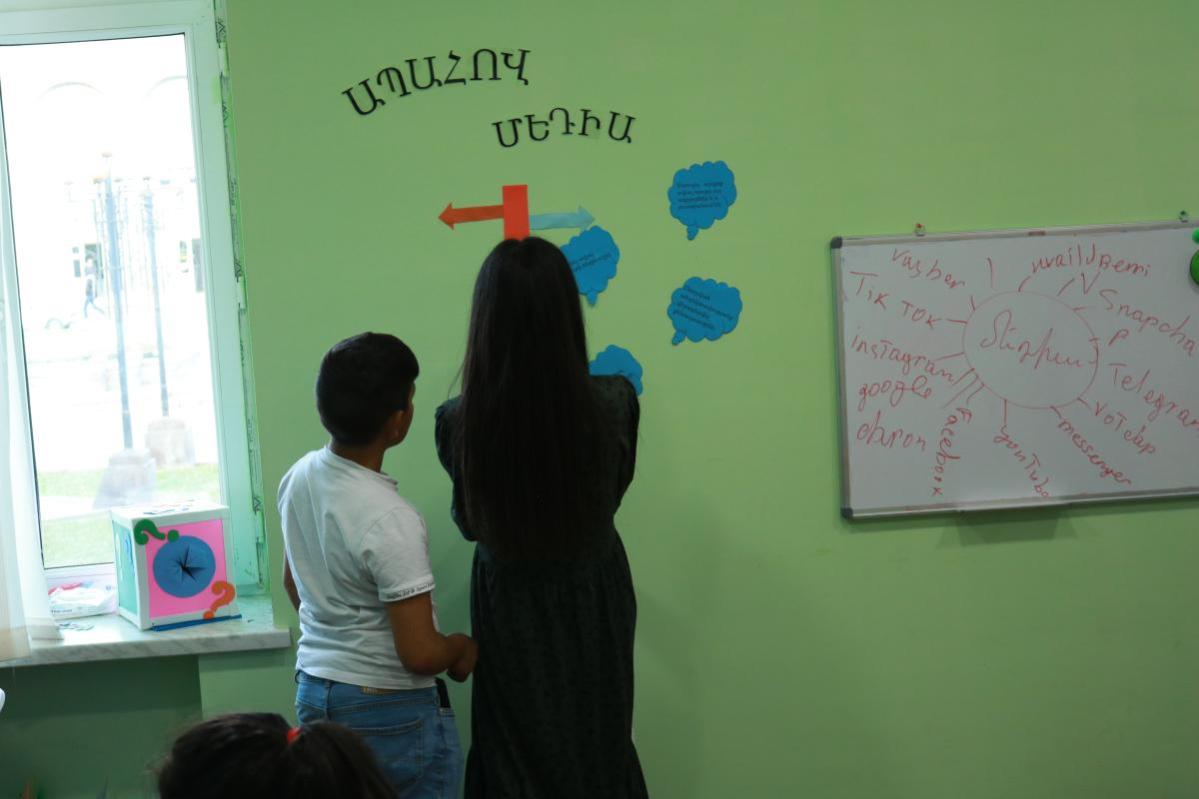
P&T’s social workers regularly assess the needs of the refugees and have found that the most common requests are for food, clothing, household, hygiene items, health services, and psychosocial support. P&T has verified these needs through collaboration with local communities, authorities and NGOs ensuring that their response remains needs-based. As Hasmik says, “I think that everyone in Goris should stand with and help the refugees from Nagorno Karabakh, both at an individual and professional level.”
However, she recognizes that refugees from Nagorno Karabakh would benefit from continued support. P&T have conducted a needs assessment to identify how to best utilize any further funding. This assessment found that the refugees are primarily looking for long-term accommodation, as well as opportunities for new jobs. The refugees are also requesting items, such as kitchen utensils, dishes, furniture and household appliances.
“I see that the international community and the Armenian Government are more organized in providing support to refugees and displaced families. In the long term, whether it is 6 months or one year, I hope that this support continues.”
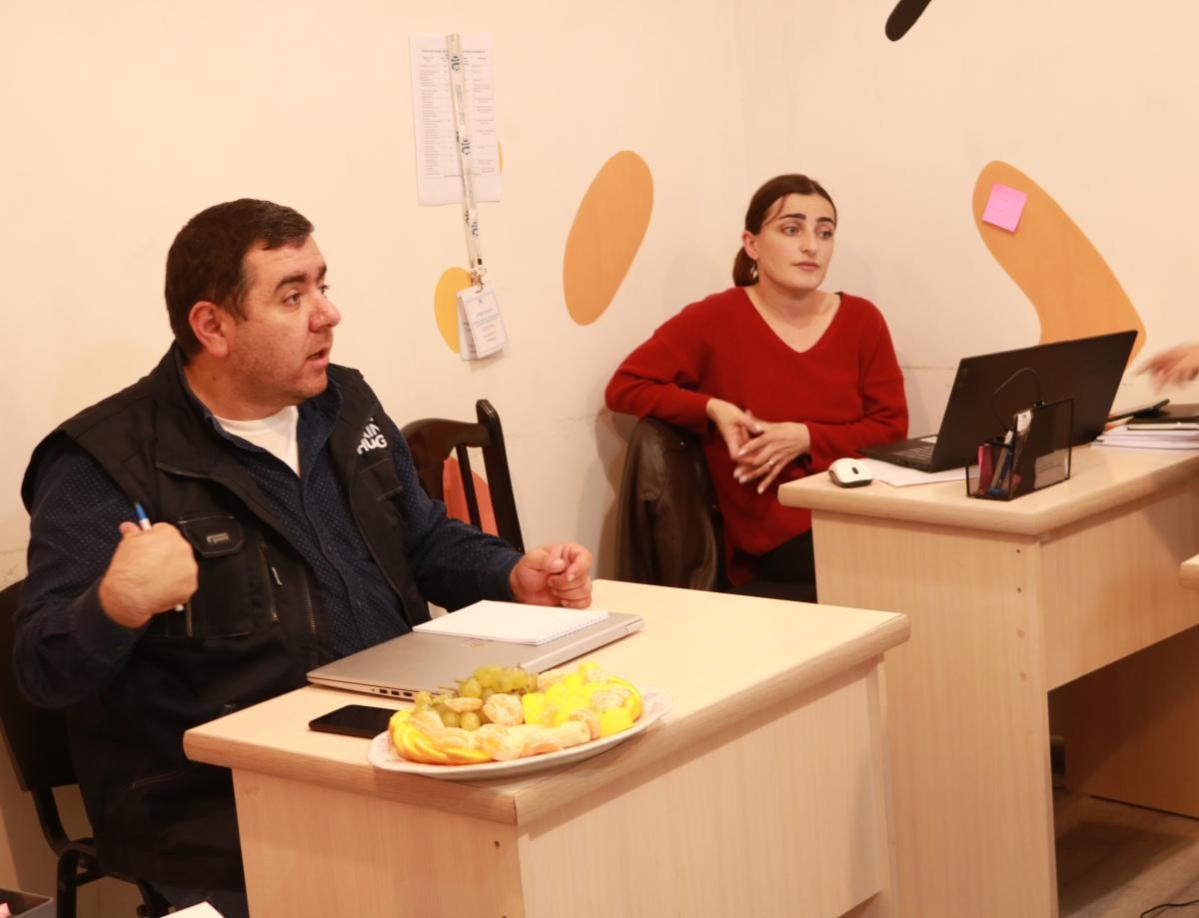
Action Against Hunger would like to extend our thanks to both AECID and Partnership and Teaching for their support in assisting the refugees from Nagorno Karabakh.
